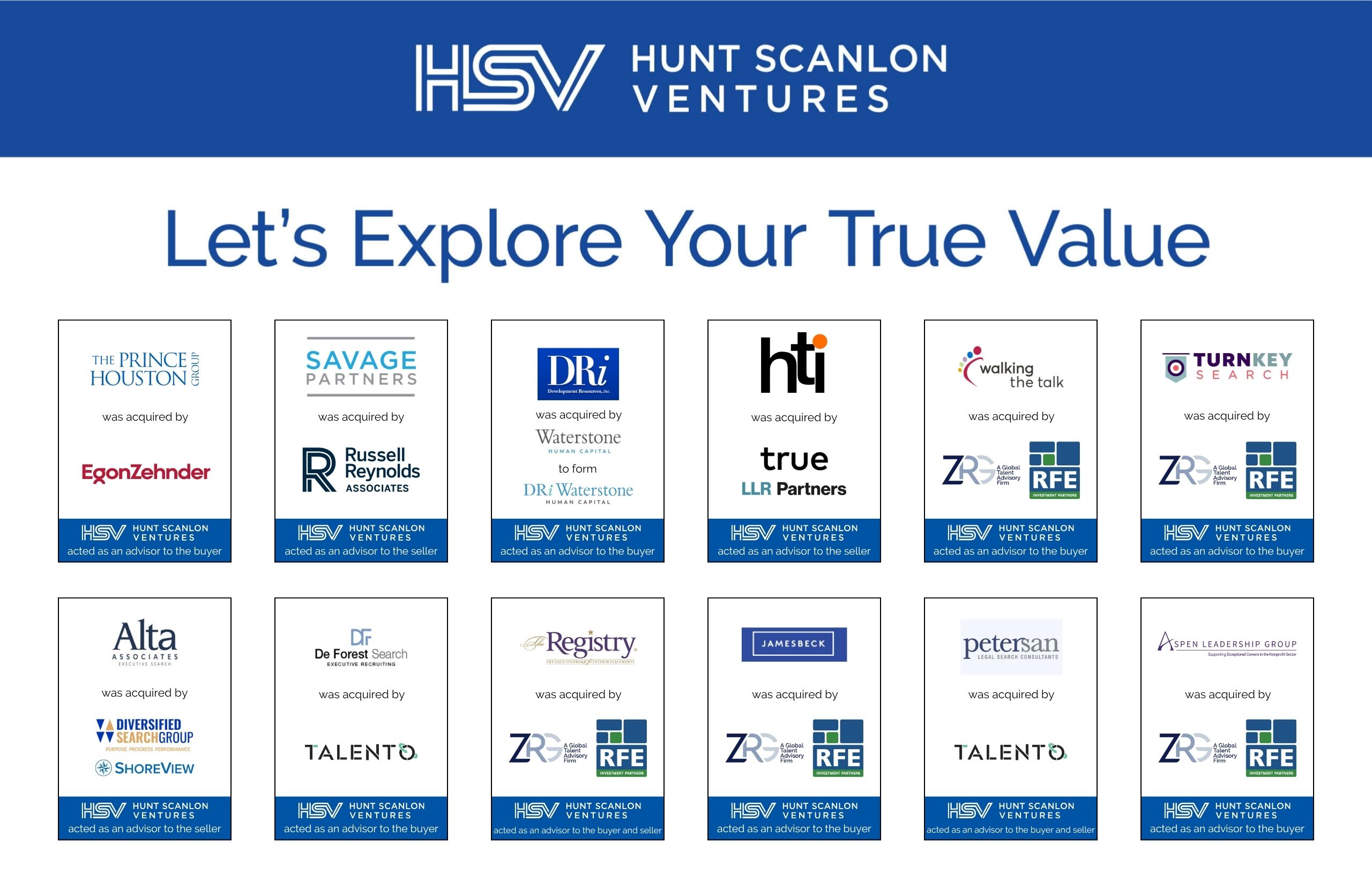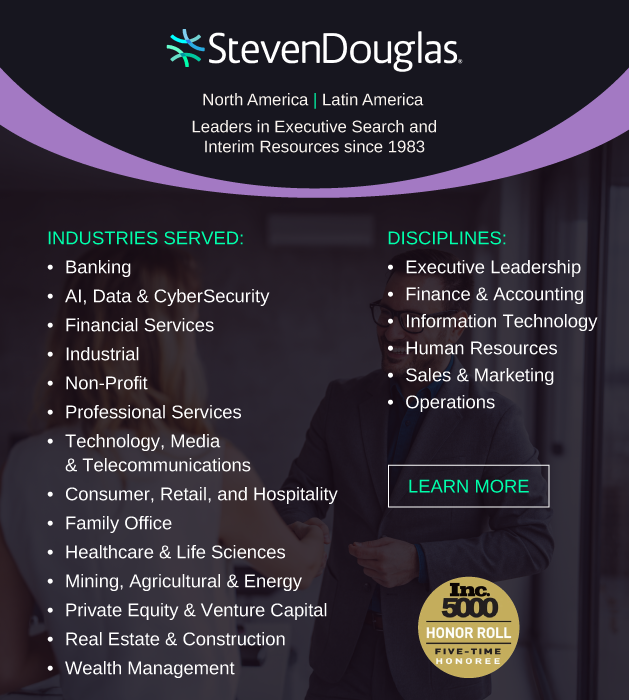Private equity firms have started the year with a renewed focus on talent as a driver of value creation. In an increasingly competitive investment environment, securing the right leaders is more critical than ever. Leo Cummings, an associate at Hunt Scanlon Ventures, takes a closer look through the lens of industry experts at JM Search to examine the key talent trends shaping private equity.
As private equity firms navigate 2025, leadership and operational expertise will remain at the center of value creation. With deal volume rebounding and investors positioning themselves for growth, securing high-impact executives will be the key differentiator.
As such, PE firms are evolving their talent strategies to focus on industry specialization, digital transformation, and AI-driven decision-making – all while adapting to the demands of a modern workforce.
According to a new report, ‘Top 5 Talent Trends in Private Equity for 2025,’ from JM Search, firms are focusing on longer-term operational improvements rather than short-term financial engineering. JM Search managing partners, Andrew Henry and Charles Egoville, lay out several critical trends that are shaping how PE firms approach leadership selection, operational execution, and technological integration.
From the increasing importance of specialized industry expertise to the growing role of AI-driven recruiting, these insights highlight how private equity leaders can position themselves for success in an evolving market.
PE investors are facing mounting challenges in differentiating themselves in a crowded marketplace. “With the volume of capital being deployed by sophisticated investors within similar sectors, the ability to differentiate and gain a competitive advantage is a growing challenge for investors,” said Mr. Henry.
“We are seeing increased aggressiveness and creativity as firms strive to get the expertise on their teams necessary for driving outcomes.”
Amassing a team of subject matter experts is a precursor for a successful investment, he noted. “We are seeing increased aggressiveness and creativity as firms strive to get the expertise on their teams necessary for driving outcomes,” he added.
Elevated Role of Operating Partners
To create stronger investment theses and drive value, firms are leveraging external boards, advisory panels, and seasoned industry executives to gain a strategic edge. This deep expertise not only informs deal selection but also enhances portfolio company performance post-investment.
The role of operating partners is expanding as firms recognize their critical impact on long-term investment success. “By the end of 2024, over 30% of PE-backed companies had been held for five years or more, the highest percentage in nearly a decade, according to PitchBook.
Amid these long holding periods, PE firms are investing more in their value creation teams and constructing more sophisticated, data-driven processes. “Operating partners will play an elevated role in this environment, helping firms navigate operational challenges and pushing leadership to reach performance milestones,” said Mr. Egoville.
As holding periods lengthen, firms are looking beyond traditional investment cycles and are prioritizing operational value creation. Operating partners are playing an essential role in refining go-to-market strategies, enhancing cost efficiencies, and implementing AI-driven analytics to optimize performance, he said.
Workforce dynamics continue to evolve, and the ability to lead hybrid teams has become a non-negotiable skill for executives. Mr. Henry stresses that digging into a leader’s track record of driving business results while overseeing a hybrid or remote workforce is a necessary assessment. “Ideally, you want leaders who have successfully executed a playbook similar to your value creation plan,” he said. “Despite the ‘return-to-office’ push, hybrid workforces are proving resilient and are likely here to stay.”
“Operating partners will play an elevated role, helping firms navigate operational challenges and pushing leadership to reach performance milestones.”
Companies enforcing strict in-person mandates are seeing higher senior turnover and longer hiring cycles, affecting value creation timelines. PE firms are prioritizing executives who have proven adaptability and communication skills in leading distributed teams while ensuring operational efficiency.
Leveraging Tech and AI
The role of technology in business is growing exponentially, and today’s PE-backed executives should be at the forefront of digital transformation. “Today’s top executives must have an understanding of how technology can support broader business goals. Executives need to be capable of assembling a team that excels at vetting and integrating new tools while quickly eliminating those that don’t contribute value,” said Mr. Egoville.
Executives who can implement AI-driven decision-making, process automation, and digital transformation strategies will have a competitive edge in 2025. Firms that fail to prioritize tech-savvy leadership risk falling behind in innovation and operational efficiency.
Artificial intelligence is revolutionizing the recruitment process, making hiring more data-driven and predictive than ever before. “Beyond driving efficiency, AI tools allow us to gather a massive quantity of market data, synthesizing it into macro-level insights that help us see the bigger picture as it evolves. We are working on predictive analytics that go beyond improving communication and automating scheduling to evaluate candidate fit, which is an exciting development,” said Mr. Egoville.
PE firms are leveraging AI to assess leadership competencies, predict candidate success, and streamline hiring timelines. As AI tools advance, firms that embrace these capabilities will gain a substantial advantage in securing top-tier talent faster and more effectively.
Article By

Leo Cummings
Leo Cummings is Editor of ExitUp, the investment blog from Hunt Scanlon Ventures designed for professionals across the human capital M&A sector. Leo serves as an Associate for Hunt Scanlon Ventures, providing robust industry research to support the firm’s investment group.






